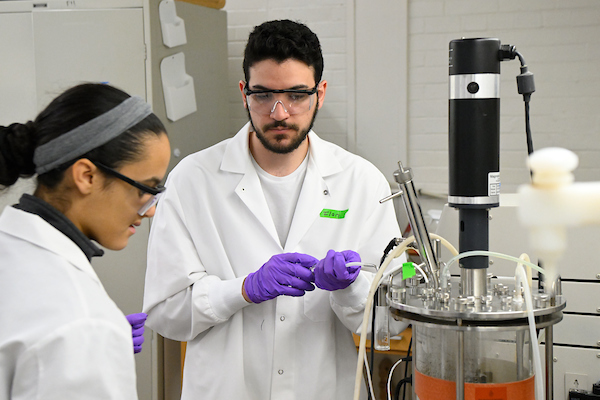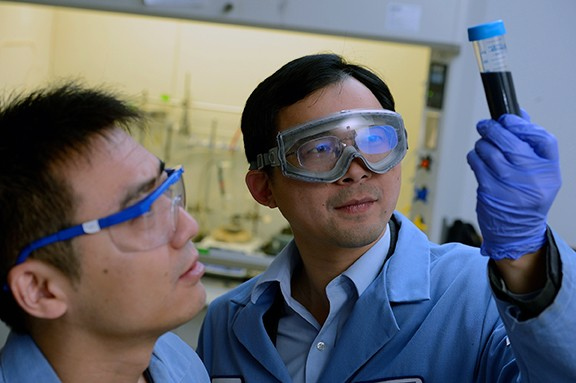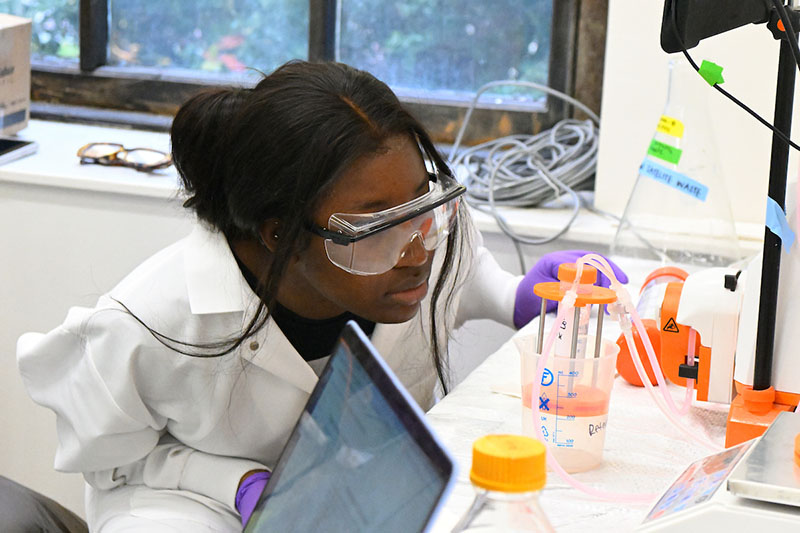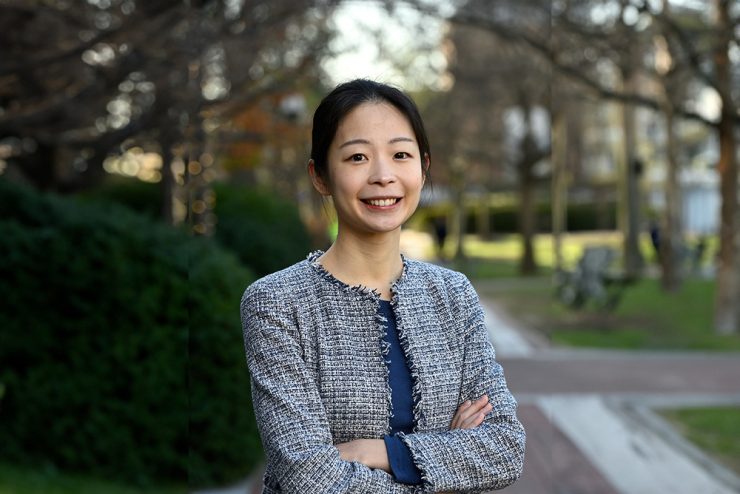Get Free Program Info
Brochure, application tips, open house invites, deadline reminders, and more!
We respect your privacy. Submitting this form constitutes your express written consent to receive emails, phone calls, text messages and/or other media from Johns Hopkins University at the phone number(s) or email(s) received, including a wireless number(s). These emails, texts, calls, or other media may be generated using automated technology. You may opt out of receiving any of these communications at any time. You are not required to provide this consent to receive services from Johns Hopkins University.
Nationally Ranked
One of U.S. News & World Report’s Best Graduate Programs of 2024
No App Fee and No GRE to Apply!
Apply by February 15 for Fall ’25
Choose the Path to Your Masters
Pursue a courses-only approach or conduct original research with an essay.
Paid Industry Co-Op Opportunities
A six-month work placement with leading companies through our Institute for NanoBiotechnology
With the combined resources across the university, including our globally recognized medical school and supercomputer-class computational facilities, as a master’s student, the opportunity to explore your interests is limitless.
Pursue next-level studies exploring biofuels for alternative energy or designing new materials for nanomedicine. The MSE in Chemical and Biomolecular Engineering is your chance to take your ideas from paper to reality. It’s your time to innovate.

Innovating For Impact — Explore Today’s Challenges
Using the tools of chemistry, biology, physics, and data science, our students and faculty develop chemical and biological technologies for an array of industries—chemical and pharmaceutical production, biomedicine, biotechnology, material design, food, and energy—making an impact worldwide.
From topics in precision medicine to materials for energy and catalysis, students are trained to become thought-leading engineers and scientists.

Research Areas in The Dept of Chemical
and Biomolecular Engineering
Collaborate with our faculty in a wide array of research areas to explore your interests in solving challenges as a chemical and biomolecular engineer.
- Biomolecular Engineering and Synthetic Biology
- Engineering for Precision Medicine
- Modeling in the “Big Data” Era
- Nanomaterials for Energy, Catalysis, and Separations
- Self-assembly and Soft Matter
- Computational Biology

Faculty Feature:
Assistant Professor Yayuan Liu
“I believe chemical engineers can play a pivotal role in tackling sustainability challenges. Given the seriousness of the climate issues at hand, I feel the responsibility to contribute to finding viable solutions as an engineer and a global citizen.”

Named one of MIT Technology Review’s 35 Innovators Under 35, Liu is developing new methods that make carbon capture more universally accessible and climate friendly by replacing the thermal mechanisms with electrochemistry reactions.
The Liu group designs and synthesizes materials at the molecular and the microscopic level, develops novel electrochemical processes using functional materials, and uses advanced characterization tools to correlate microscopic phenomena with macroscopic performance.
Co-Op Master’s Path with the
Institute for NanoBioTechnology
The Institute for NanoBioTechnology collaborates with major industry partners to offer a Cooperative (Co-Op) Education program for master’s students in chemical and biomolecular engineering.
For six months, students gain work experience, network, and build technical and non-technical skills that prepares them for a competitive job market.
See Where a Johns Hopkins
Graduate Degree Can Take You
From the first supersonic ramjet engine to speech recognition software to cancer genome decoding, Johns Hopkins Engineering innovations contribute to the common good—and so will you!
Join us in our unwavering spirit of discovery with a master’s in Chemical and Biomolecular Engineering
Request Free
Program Info
We respect your privacy. Submitting this form constitutes your express written consent to receive emails, phone calls, text messages and/or other media from Johns Hopkins University at the phone number(s) or email(s) received, including a wireless number(s). These emails, texts, calls, or other media may be generated using automated technology. You may opt out of receiving any of these communications at any time. You are not required to provide this consent to receive services from Johns Hopkins University.

© 2024 Johns Hopkins University. All rights reserved.
Contact Us
Johns Hopkins Whiting School of Engineering
3400 North Charles Street
Baltimore, MD 21218

